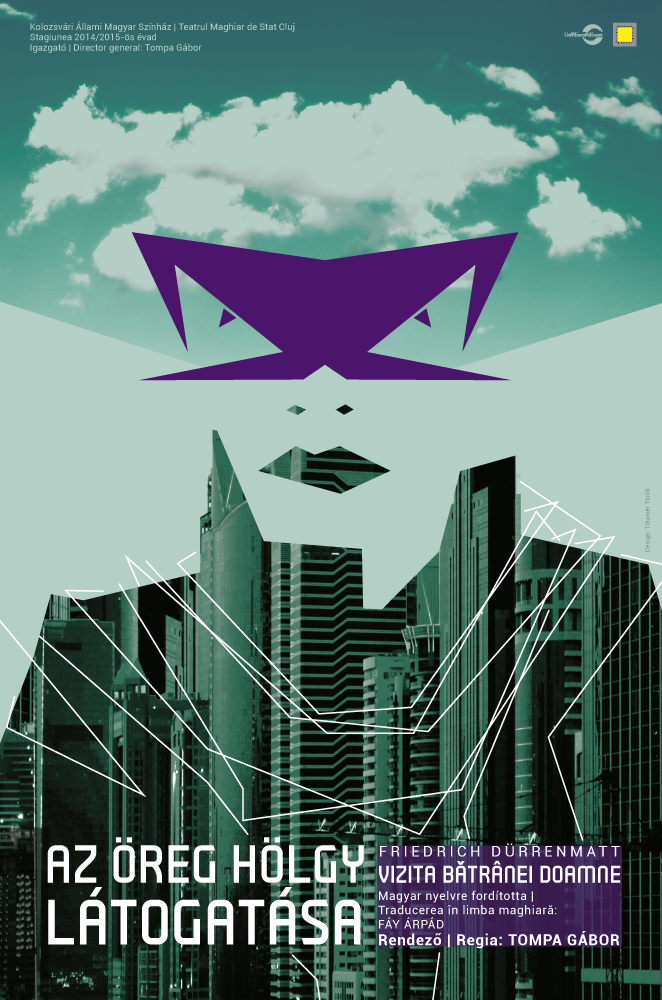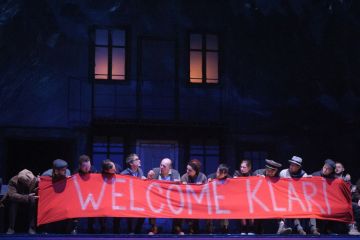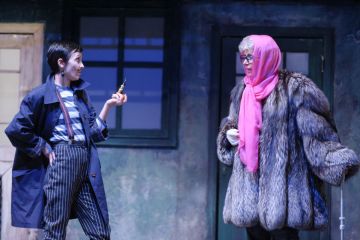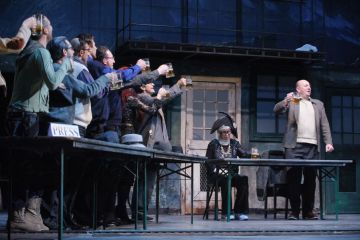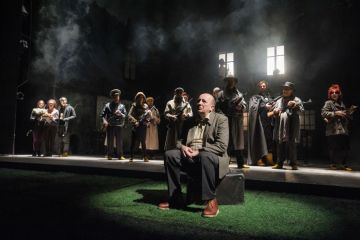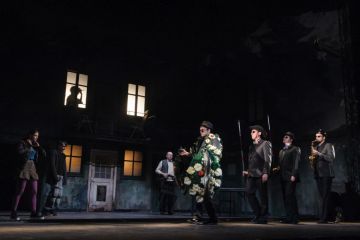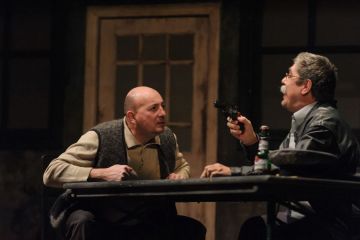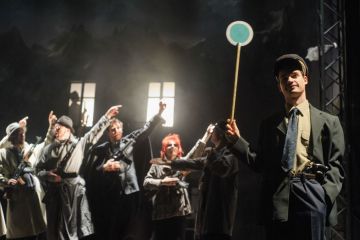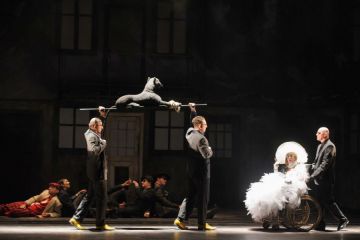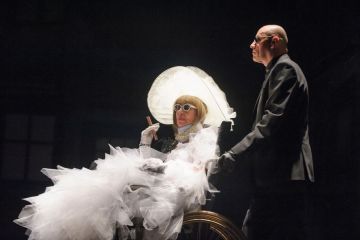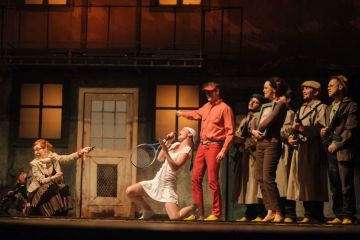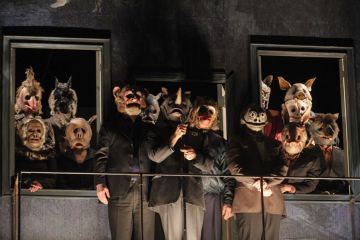The Visit
Main stage
RO

Magda Stief
József Bíró
Melinda Kántor
Loránd Farkas
Rita Sigmond
Áron Dimény
Alpár Fogarasi
Szabolcs Balla
Csaba Marosán
Attila Orbán
Gizella Kicsid
Balázs Bodolai
Éva Imre
Zsolt Bogdán
Ervin Szűcs
Lóránd Váta
Gábor Viola
Sándor Keresztes
Levente Molnár
Róbert Laczkó Vass
András Buzási
Ferenc Sinkó
Réka Csutak
Júlia Laczó
Áron Dimény
Zsolt Vatány / Péter Árus
Csilla Albert
Andrea Vindis
directed by
Gábor Tompa
András Visky
Helmut Stürmer
Carmencita Brojboiu
Ilona Varga-Járó
Vasile Şirli
Johanna Bodor
Cezarina Iulia Popescu
Kinga Kovács , Gábor Viola
Pál Böjthe
Emőke Veres
Friedrich Dürrenmatt's The Visit is his only theatrical piece and he termed it not simply a comedy, but a tragicomedy. Dürrenmatt said that although tragedy is impossible in our modern times, it hides in the depths of our grotesque stories in almost every case. “The flow of the tragic stream” has been given a new form by the society of our times, since today it is society and not fate that eliminates its heroes. Dürrenmatt is interested in this tragic element in comedy, just like Shakespeare, whose comedies reveal a certain cruelty that suddenly pops up from underneath the surface.
The Visit is a pathological report of a small rural town. A town where the local community repeating moral clichés and forming “little circles”, “little public bodies”, societies, assemblies and other alliances of interests is proud of its own blamelessness, while its every inch is corrupt and mercenary.
Claire Zachanassian’s revenge is not so much against Alfred Ill who played her false, but against this community, living in the bonds of its own pettiness, whose corruption she exposes. Tragedy, writes Dürrenmatt, is devoid of objectivity. Moreover it makes it impossible, while comedy practically creates it. I think that this indispensable aesthetical objectivity could help us to see more clearly, and to understand the community of which we are part.
Gábor Tompa









